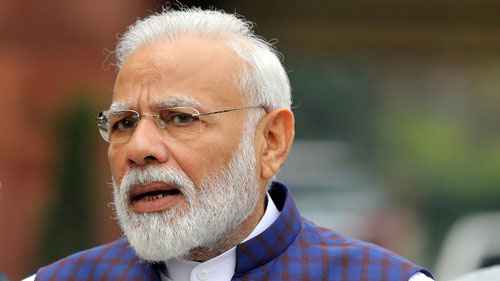At around 11am on February 14, some 20 Indian tax officials and police burst into the BBC’s offices in New Delhi, shouting at staff to step away from their computers and hand over their mobile phones, ac-cording to two people present.
At the company’s bureau in India’s financial capital, Mumbai, tax officials launched a second raid. The government said the BBC had failed to respond to repeated requests to clarify its tax affairs related to the profits and remittances from its Indian operations.
The BBC has said it is cooperating fully with tax authorities and hopes to resolve matters quickly, adding its journalists would continue to report “without fear or favour”. It declined to comment for this story.
Three weeks before the raids — which the gov-ernment called a “survey” — the BBC released a two-part documentary that included an examination of Prime Minister Narendra Modi’s role in sectarian riots in his home state of Gujarat in 2002 when he was chief minister there. The documentary, which was only broadcast in Britain, accused Modi of fostering a climate of impunity that fuelled the vio-lence.
Modi’s government has called the documentary “biased” and reflecting a “colonial mindset”. Foreign Minister S. Jaishankar told the ANI news agency last week it was “politics by another means” and suggested its timing was intended to undermine support for Modi. The BBC has said it stands by the reporting.
The 72-year-old prime minister enjoys high ap-proval ratings and is expected to run for reelection next year for the Hindu nationalist Bharatiya Janata Party (BJP).
In late January, Indian authorities ordered the removal of social media posts sharing the documen-tary and police detained some Indian students who tried to screen it, saying it would disturb the peace. They were released shortly afterwards.
The tax inspections at the BBC’s offices — dur-ing which officials cloned the mobile phones of some senior staff and searched computers, according to the two people present — have highlighted the concerns of some journalists and media rights watchdogs about what they say is a decline in press freedom under Modi.
Reuters spoke to eight Indian journalists, indus-try executives and media analysts who said that some media which reported critically on the government have been targeted with inspections by government agencies, the suspension of state advertising and the arrest of reporters.
“There’s never been a golden age of Indian journalism,” said Abhinandan Sekhri, chief executive of independent online media group, Newslaundry, whose offices in New Delhi were surveyed twice by tax officials in 2021 after critical coverage of Modi’s administration. “But it has never been like it is now.”
A criminal case filed by the tax department against Sekhri alleging tax evasion and forging a valuation report was thrown out by a judge in Delhi in November. Sekhri has sued the government for attacks on his fundamental rights and freedom of expression; the case is being heard in the Delhi High court.
Modi’s government has vigorously denied the BBC tax inspection — the first against an interna-tional news organisation in decades — was a re-sponse to the film.—Agencies










